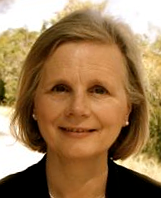 |
| Felicity Dale |
The Black Swan Effect is an unusual title. Why did you choose it?
The title comes from a story in the introduction to the book. Back in 16th century London, people had never seen a black swan, and so the term came to mean something impossible, a bit like a unicorn. Then in 1696, a Dutch explorer discovered a whole species of black swans in Western Australia. So the meaning of the term changed. It symbolized something that once was thought impossible but is now known to be possible, even commonplace.
All it took was one black swan to change people’s minds forever. Similarly, all it takes is one Phoebe, one Junia, one Deborah, one Esther to prove that God uses women in his Kingdom in all kinds of roles, including leadership.
Who wrote the book?
There are 14 contributing authors, both men and women. They come from many different backgrounds and church traditions. Between us we have written more than 50 books. Each of us writes from his or her own passion and expertise into a specific area. The whole is woven together to form a single narrative.
What do you hope to achieve through the book?
For too long women have been held back because of church tradition and a few challenging Scriptures that stand against the general tenor and trend of the Bible as a whole. We long to see men and women working together, as equals, side by side, for the sake of the Kingdom. This will take men being willing to champion women as they boldly break through the barriers that have held them back. And it will take women daring to step out and follow the Holy Spirit as he leads them into roles where they’ve never gone before.
Who might be interested in a book such as this?
We think three different groups of people would have a specific interest in this book:
Many Christians—both men and women—have come to the conclusion that there is no better way to double the size of God’s missions workforce than to fully deploy women to use their spiritual gifts and God-given capacities.
Others are asking theological questions. They are investigating how the Bible portrays women, especially women leaders. Were the New Testament writers—in particular, the Apostle Paul—misogynists? Are there alternative interpretations for some of the really difficult passages of Scripture?
Still others who enter this discussion are drawn to it because of issues related to justice and human dignity. They want to know why some religions undermine the worth of women, why many churches are not equal opportunity employers, and why Christians are not engaging more with issues such as sex trafficking and global female infanticide. As they study Scripture, they can’t even imagine a God who would discriminate against women.
What kind of questions does the book raise?
We are not afraid to ask the right questions with a right heart at the right time. That’s not the same as saying we come up with answers to all of them!
Here are a few of the questions we air:
- Does God like men more than women?
- Has God ever used a woman to change the course of history?
- What about those troublesome verses?
- Who leads better—men or women?
- Are women ever their own worst enemy?
- Why is gender such a big deal in many cultures?
How can people get hold of the book?
The book is due to be published on 5th April. You should be able to find it on Amazon and elsewhere from that date.
Questions:
- What are your personal views on women and church leadership?
- Have you read any of Felicity's earlier books?
- Which of her answers above do you find most interesting - and why?
See also:
- Felicity Dale on women and church - Journeys of heart and mind
- Men, women and children - Journeys of heart and mind
- Nomad with the Dales - Journeys of heart and mind
- Place of women, The - Journeys of heart and mind
- Felicity Dale's blog - Simply church






